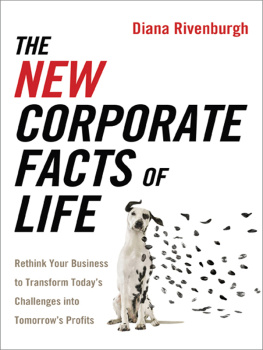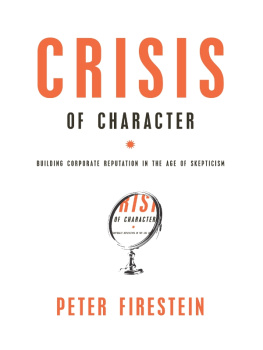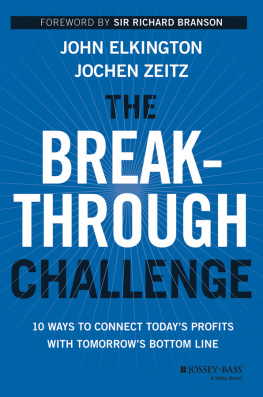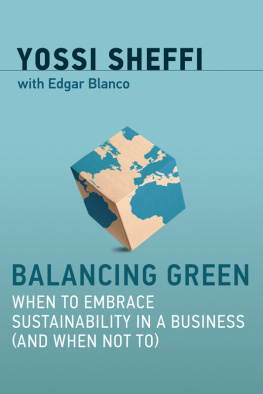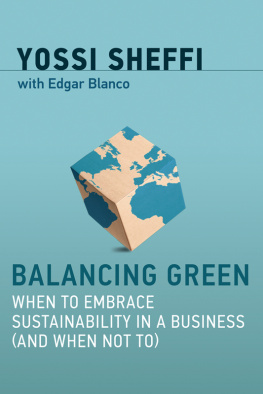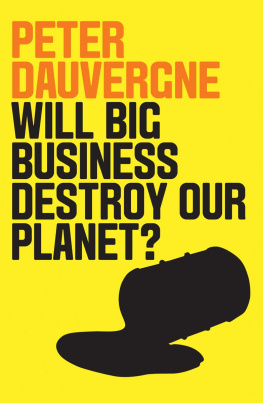Acknowledgments
WRITING A BOOK like The New Corporate Facts of Life takes a great deal of time and effort, not to mention extensive research and in-depth conversations with a wide range of people. Some of these people deserve special recognition and my enduring gratitude for contributing their time, talents, knowledge, and perspectives. Their generosity has enriched my life more than I can say.
First, I must acknowledge Paul Schempp for convincing me to go from talking about writing a book to actually writing one. Thank you, Paul, for your support, love, and unwavering faith in me every step of the way.
My literary and publishing team deserves high praise and gratitude for believing in me, and for giving me their honest feedback and unbridled encouragement. I'm immensely grateful to my literary agent, Michael Snell, for taking this journey with me, not just as my agent, but as collaborator, editor, muse, humorist, and friend. As I planted the seeds, Michael watered and tended them, and pulled out no small number of weeds. Many dedicated and talented people on the AMACOM publishing team skillfully shepherded the manuscript through the editorial, design, and production process. I'm especially thankful for the keen eye and expertise of AMACOM's Senior Acquisitions Editor, Bob Nirkind, who saw value in my book proposal and thoughtfully improved the manuscript through more than a few iterations. My thanks also go to marketing consultant Betty Rauch, who helped me find the heart of this book and bring it into the light of day.
Many leaders spent time talking with me, sharing experiences and inviting me into their organizations to learn more. Among those who deserve special thanks: Kurt Kuehn, Scott Wicker, Ross McCullough, Michael Johnson, Patrice Andr, Paul Nieminen, Dean Foust, Karen Kreager, Michael Hance, and David Gurnsey from UPS; John Brock, Pamela Kimmet and Fred Roselli at Coca-Cola Enterprises; Preben Haaning, Diane Cox and the senior leadership team at Novo Nordisk's U.S. operations in North Carolina; John Gardner at Novelis; Mogens Smed, Tracy Baker, Laura Lee Bocade, Alicia Farrington, Kate Elliot, Liane MacNeil, and Mike Greer from DIRTT; John Wells and Jim Hartzfeld and the inspirational legacy of Ray Anderson at Interface; Steve and Marie Nygren of Serenbe; Paul Snyder and Maury Zimring of InterContinental Hotels Group; John Lyell Clarke III at Clarke; President G.P. Bud Peterson, Val Peterson, Marcia Kinstler, Michael Chang, and Cindy Jackson from Georgia Institute of Technology; President Elizabeth Kiss and Susan Kidd of Agnes Scott College; William Strang of TOTO Americas; James Farrar and Rachel Parikh of SAP; Lindsay Levin of Leaders Quest; Terry Stinson and the sustainability leadership team at the Mandarin Oriental Hotel Group; and Ken Cornelius and Alison Taylor of Siemens.
My appreciation also extends to the many people who have conducted and published valuable research, made introductions, and shared their expertise and advice, especially, Peter Senge of MIT and the Society for Organizational Learning; Jorge Fernandez with the Metro Atlanta Chamber of Commerce; Suzanne Burnes with Sustainable Atlanta; Anthony Cortese of Second Nature; John Horton of Syllogy Healthcare Analytics; Nicole Lipkin, author of What Keeps Leaders Up at Night; William Seidman of Cerebyte and author of The Star Factor; Alexandra Hemrick, author, artist, and researcher; Martin Delahoussaye; James Thebaut, award-winning documentary film producer and founder of The Chronicles Group; Stephen Brereton, Canadian Consul General; Annabelle Malins, British Consul-General; David Adelman, U.S. Ambassador to Singapore; and Thomas Thomas of the Singapore Compact.
I would also like to thank my clients for welcoming me into their organizations, and for their willingness to embrace new perspectives, engage diverse groups of stakeholders, and display the leadership needed to prosper through responsible, innovative practices.
My thanks also go to the faculty and participants of the University of Cambridge and the Prince of Wales's Business and Sustainability Programme, especially Karen-Flanders Reid, leader for the Atlanta summit; Matt Arnold with J.P. Morgan Chase; Jonathon Porritt of Forum for the Future; Professor Tom Gladwin with the University of Michigan; Polly Courtice of the University of Cambridge; Kirsty Jenkinson with the World Resources Institute; Michael Kobori of Levi Strauss & Co.; Eric Ostern with Unilever; Aimee Christensen of Christensen Global Strategies; Peter Evans with GE Energy; Linda Fisher with DuPont; Jeff Seabright, John Reid and Liz Gorski from The Coca-Cola Company; Robert Franklin of Morehouse College; Reggie Walker, Lillian Borsa, and Ciaran Morris with PricewaterhouseCoopers LLP; Rawson Haverty of Haverty's Furniture; Denise Quarles with the City of Atlanta; Susan Davis with Improve International; Walter Kraus of Weston Foods; Alfred Blackmar of Aflac; Mahadev Raman of Arup; Jason Teter with Lafarge; and Peter Thompson of Boeing.
I benefitted greatly for the help of outstanding professors and thought leaders at Case Western Reserve University, who have done more than they may realize to shape my work and my life, especially Harlow Cohen, David Cooperrider, Ron Fry, Chris Laszlo, Richard Boyatzis, and Ante Glavas. My gratitude extends to my learning partners, and brilliant friends, who have stood by me through the CWRU journey and beyond, especially: Jacqueline Wong, Davina Brown, Robyne Blood, Marco Bertola, Deborah Levine, Laura Peterson, Vania Bueno, and Diana Durek.
Finally, I would like to thank my family, friends, and loved ones for their support, patience, and social therapy while I've been busy living the dream.
FREE SAMPLE CHAPTER FROM
The Practical Drucker
by William A. Cohen
Be sure to read The Practical Drucker by William A. Cohen (978-0-8144-3349-2; $25.00; also available as an eBook). In succinct, satisfying chapters, the book distills the practical wisdom from Drucker's myriad books, essays, articles, and his decades of teaching and consulting into a set of fresh, vital lessons that will resonate today and in years to come.
For more information, please visit: www.amacombooks.org
Here's a free sample from the book.
CHAPTER | ONE
General Business Ethics
Peter Drucker was extremely ethical in his outlook as well as in his actions. On a personal level, he was one of the most principled individuals I have ever met. From both his writing and his classroom lectures, it was clear that he sought to arrive at basic ethical principles that were essential for business. He believed that ethical behavior was an absolute requirement of all organizational leaders, that they should incorporate integrity and ethics into how they conducted their business. First and foremost, he concluded that while followers would forgive an organizational leader much, they would not forgive a lack of integrity in personal dealings. However, Drucker well understood that interpretations of ethics and integrity might vary and therefore it was not easy trying to derive a common point of ethics that would be applicable as general business ethics.
Drucker Investigates Business Ethics
As he grappled mightily to understand ethics, Peter Drucker cast a wide net, beginning with ethical philosophies from the Western tradition and expanding his search both geographically and historically. He did find a single point of complete agreement, and one point only, in which an ethical code of sorts applied universally. (More about that later.) There were usually various types of extenuating circumstances within all ethical interpretations. For example, clemency might be granted to someone who violates a code of ethics under certain circumstances. Thou shalt not steal is one of the Ten Commandments. Yet a mother stealing to feed a starving child might be excused as committing a lesser evil for a greater good. Differences in ethics owing to differences in social or cultural mores might also be accepted.

